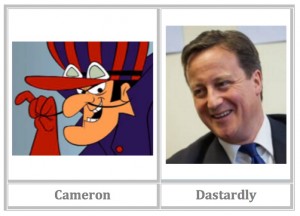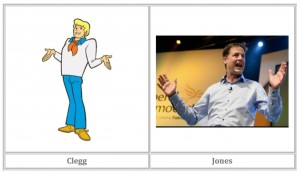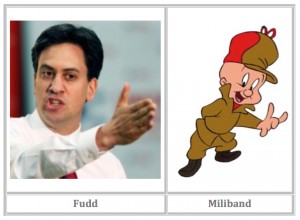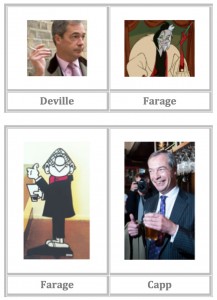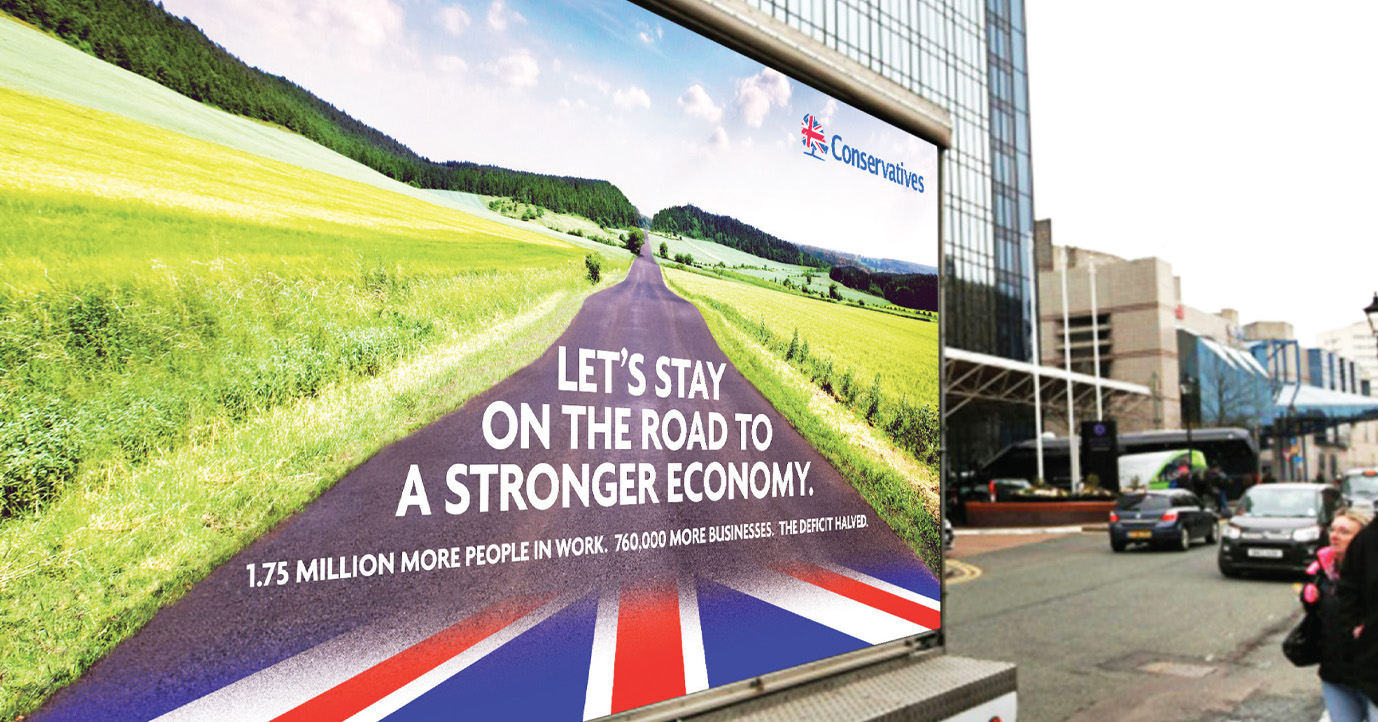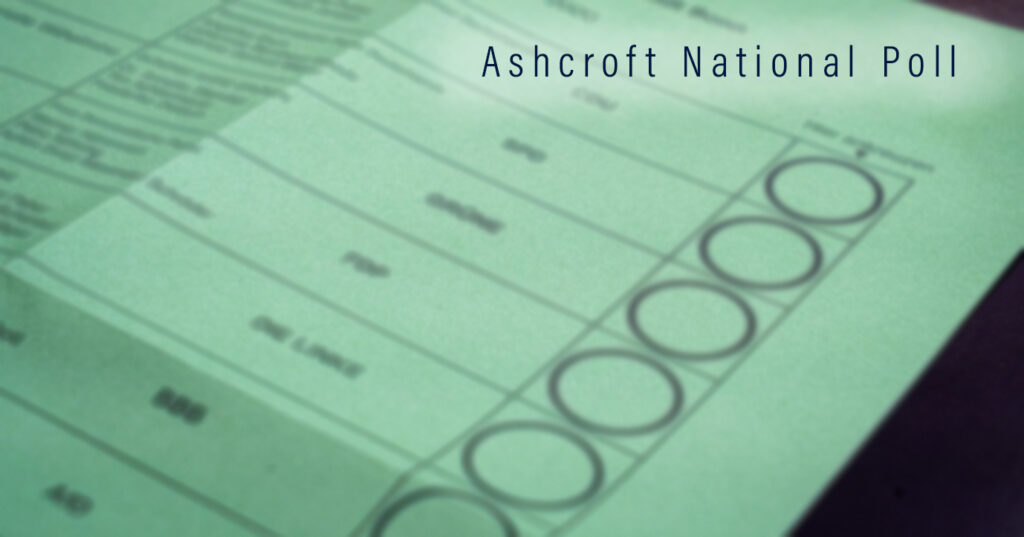
Labour and the Conservatives are once again tied in this week’s Ashcroft National Poll. Both parties are down a point at 31%, with UKIP on 15% for the third consecutive week and the Greens unchanged on 9%. The Lib Dems are up two points at 8%.
The SNP are up a point at 4%, but Britain-wide polls are not the best measure of the party’s impact. My constituency research, covering individual Scottish seats, will provide a better guide when it is published on Wednesday. (Sign up for news alerts to get the results straight to your inbox).
This week I found swing voters – who either say they don’t know how they will vote or that they may change their mind from their current party – closely divided over whether “the country is heading in the right direction and we need to stay on the same path” (47%) or “the policies of the last few years have failed and it is time for a change” (49%). Labour voters (70%) and UKIP supporters (63%) were the most likely to say it was time for a change, and overall the electorate opted for change by 51% to 45%.
As to the principal change on offer, Labour had made no progress on the perceptions that have held back the party’s progress. Nearly six in ten (58%) thought the party had “not yet learned the right lessons from what went wrong during their time in government, and cannot yet be trusted to run the country again” – down just one point since I asked the question last September. Just over a quarter (26%) said they thought Labour had learned the right lessons and could now be trusted, while 17% said the last Labour government “did a pretty good job and I don’t think they have to learn lessons in order for me to be happy for them to run the country again.”
When it came to specific reservations, 63% of voters (up five points since September), including 41% of those who currently intended to vote Labour, said one of the reservations they had about the party was that “they might spend and borrow more than the country can afford”. Nearly as many of the electorate as a whole (60%), and even more current Labour voters (44%), said one of their reservations was that “I don’t think Ed Miliband would be a very good Prime Minister”. A similar overall proportion (61%), including 36% of Labour voters and 70% of swing voters, said one of their concerns was that the party has “not made clear what they would do to improve things.”
These feelings were echoed in my latest round of focus groups, held last week with undecided voters in the marginal seats of Sutton & Cheam and Elmet & Rothwell. One development, however, is that people are at least starting to notice that the election will soon be upon them. Even so, the process story of the TV debates continues to be heard above any matters of substance. For most people it was clear that David Cameron was trying to avoid taking part. While his reasons were understandable as far as his own interests were concerned (“it’s because he struggles with the UKIP leader. But don’t we all”), he was starting to look to some like a “debate dodger” who ought to be more willing to submit himself to questioning “out of their comfort zone”. Notably, though, those who were already the most hostile to the PM argued this point the most strongly. Downing Street evidently judges, probably rightly, that this impression will ultimately be less damaging than taking part in the debates on the wrong terms.
**********
Events in Greece have few parallels with Britain, as far as our participants were concerned. In fact it was not always clear quite what these events had been: “It was something to do with the economy not doing very well.” Most felt the situation there did not apply here in the same way or to the same extent, having arisen essentially from “the Greeks being Greeks”, not paying their taxes and expecting the EU to bail them out from the consequences of their profligacy. As a result they had been through “hell, riots, anarchy”. If there is a moral to the story it is “don’t borrow too much” and “don’t listen to fake promises”. And for some, it was one more reason to prefer stability at home in an uncertain world, rather than evidence that austerity could be ended by voting against it.
**********
One message that has begun to percolate through to people was Labour’s focus on the NHS, though apart from a promise to protect rather than “privatise” the service few had noted the details of “how many more nurses we’re going to get, and all that malarkey”. The specifics of Labour’s pledge – including 5,000 new home care workers, 8,000 new GPs, and 20,000 new nurses – seemed to our groups to amount almost to a caricature of a suspect political promise. It sound completely unrealistic (“where is he going to get 8,000 GPs?”) and unaffordable (“how expensive is that? The biggest problem we’ve got is balancing the books”; “is it the Mansion Tax? It’s going to save the world, that”). And while the new staff would be welcome if they ever materialised, the policy did not sound like an attempt to deal with the deeper problems facing the NHS. The risk to Labour is that an approach designed to highlight one of the party’s strengths will have the effect of reinforcing perhaps its biggest weakness. As one floating voter put it: “Labour are theoretically better on the NHS because they spend, but the money they spend is borrowed”.
**********
David Cameron’s promise to reduce the benefit cap, by contrast, was thought to be both practical and right. Some observed that £23,000 went a lot further in some parts of the country than others, but the principle – “you shouldn’t be able to earn more not working than you do working” – was supported overwhelmingly. “It’s a great idea. A lot of people who work with me are skilled and have degrees and are only on about twenty-two”. A few also said they had heard Cameron talking about ensuring new immigrants could not claim benefits immediately – to which their only objection was to wonder why they had been allowed to do so up to now.
**********
In Sutton, where my constituency polls suggest the Lib Dems are so far defying the national tide, local issues and Paul Burstow’s reputation had played a big part in people’s 2010 voting decisions and seemed set to do so again. Nationally, the party’s own road poster, steering between reckless borrowing to the left and reckless cuts to the right, summed up the Lib Dems’ approach for these participants – for whom staying the course, as urged by the Tories, meant voting as they did last time. But those who did not vote Lib Dem in 2010, or did so in West Yorkshire, were either dissatisfied with this rather non-specific approach or did not accept that the party was still equidistant between Labour and the Tories: “I struggle with the whole Lib Dem thing since the coalition – he might as well be a Tory.”
**********
The Conservative poster featuring Ed Miliband and Alex Salmond outside Number Ten beneath the legend “your worst nightmare…just got worse” caused some amusement. People disliked the idea of a Labour-SNP government (“a recipe for disaster”), which reflects the finding of my poll last year that found a majority, including most Labour voters, saying they would be unhappy with the SNP being part of a coalition at Westminster. But the main effect of the poster in the groups was not to warn of the dangers of Labour, but to stoke resentment of the SNP and what they saw as Scotland’s unreasonable demands for preferential treatment. “The amount of time and effort they’ve all gone to because they’re so desperate to get their additional powers. Why is Scotland so bloody special? Their kids get university for free, they get free prescriptions, and they’re still moaning.” We will see as the campaign unfolds whether the Scottish factor comes to play a part in English voters’ decisions.
**********
At the end of the first month of the election year, what do the parties’ campaigns boil down to? The Greens have yet to break through everywhere, though in a world where few can name any parties’ policies their proposal to legalise membership of terrorist organisations has achieved impressive cut-through. But for these voters their message in a nutshell remained “Vote Green to save the planet”.
UKIP’s message was “leave the EU and control immigration” (with some adding “smoke in pubs again”). But the other recurring theme for the party, also noted last week, was that they were a “one-trick pony”. “What else have they got? If they were in government, what would they do about the NHS?”
Other than in Sutton, where people heard the Lib Dems’ message as “save St Helier Hospital”, no such specific ideas attached themselves to the party. It amounted to “Vote Lib Dem to balance the extremes – to split the difference.”
Ed Miliband’s message so far – not entirely convincing, for the reasons described above – was simply “vote Labour to save the NHS”. Some added “…and stop the cuts” or “…and tax the rich”.
The Conservatives would have been pleased to hear their message described as “finish the job and get back on track”, though not everyone was sure the economy was really on the right course. Accordingly, few were yet certain about where their cross would end up. “If [the messages] were anonymous I’d like the Labour one, but now I struggle. The Tories haven’t sorted the economy out but I just can’t see myself voting for Ed Miliband”. Some said they would probably decide on the way to the polling station.
**********
Finally, my thanks to all the Twitter followers who suggested questions to reveal more about voters’ perceptions. I will use as many as I can, but this week (with thanks to Chris Deerin)… party leaders as cartoon characters. Mr Cameron? “Top Cat. He doesn’t get flustered”, or for those who took a less benign view, Dick Dastardly.
Mr Clegg? The clean-cut but somewhat ineffectual Fred Jones from Scooby-Doo.
Mr Miliband? The hapless but by no means unlikeable Deputy Dawg, or possibly Elmer Fudd, in perennial but fruitless pursuit of the Prime Ministerial wabbit.
For Mr Farage we have another example of what the Telegraph’s Stephen Bush has called the Sean Bean/Mr Bean dichotomy: is the real UKIP leader Andy Capp or Cruella Deville?
